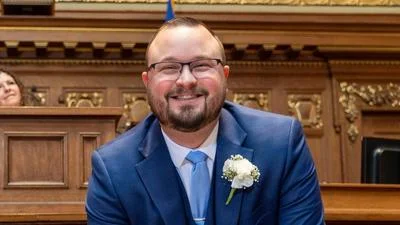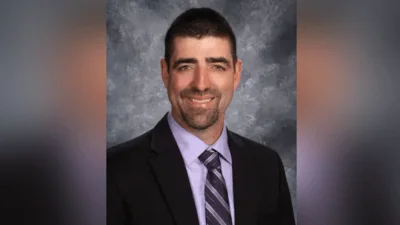Dianne Hesselbein, Wisconsin State Senator for 27th District | Official Website
Dianne Hesselbein, Wisconsin State Senator for 27th District | Official Website
According to the Wisconsin State Legislature's official website, the bill was described as follows: "perimenopause and menopause education. (FE)".
The following is our breakdown, based on the actual bill text, and may include interpretation to clarify its provisions.
In essence, this bill mandates the Wisconsin Department of Health Services to establish partnerships with health care providers, such as obstetricians and gynecologists, as well as community health centers and hospitals, to educate women about perimenopause and menopause. The purpose is to prepare women for these life stages by offering information on symptoms, processes, and related issues. The department is tasked with creating both electronic and physical informational materials in collaboration with these partners. These materials will cover symptoms, treatments, biological processes, consulting guidelines, communication tips with family and friends, and other pertinent information deemed necessary. The act is effective three months after publication.
The bill was co-authored by Representative Karen DeSanto (Democrat-40th District), Senator Jodi Habush Sinykin (Democrat-8th District), Senator LaTonya Johnson (Democrat-6th District), Senator Sarah Keyeski (Democrat-14th District), and Senator Chris Larson (Democrat-7th District). It was co-sponsored by Representative Mike Bare (Democrat-80th District), Representative Brienne Brown (Democrat-43rd District), and Representative Angelina M. Cruz (Democrat-62nd District), along with 22 other co-sponsors.
Dianne H. Hesselbein has authored or co-authored another 53 bills since the beginning of the 2025 session, with all of them being adopted.
Hesselbein graduated from the University of Wisconsin at Oshkosh in 1993 with a BS.
Hesselbein, a Democrat, was elected to the Wisconsin State Senate in 2023 to represent the state's 27th Senate district, replacing previous state senator Jon Erpenbach.
In Wisconsin, the legislative process starts when a senator, constituent, group, or agency proposes an idea for a bill. After drafting, the bill is introduced, numbered, and referred to a committee for review and public input. If approved, it moves through three readings and votes in both the Senate and Assembly. Once both chambers pass the same version, the bill goes to the governor, who can sign it, veto it, or let it become law without a signature. Only a small share of bills introduced each session ultimately become law. You can learn more about the Wisconsin legislative process here.
| Bill Number | Date Introduced | Short Description |
|---|---|---|
| SB356 | 06/27/2025 | Perimenopause and menopause education. (FE) |
| SB332 | 06/19/2025 | Prohibition against undetectable firearms, possessing a frame or receiver of a firearm without a serial number, and providing a penalty |
| SB268 | 05/20/2025 | Prohibiting corporal punishment in public and private schools |
| SB265 | 05/20/2025 | Waiver of fees for admission to state parks on Earth Day. (FE) |





 Alerts Sign-up
Alerts Sign-up